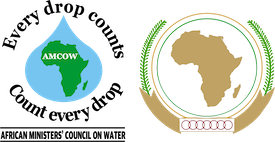Swakopmund, Namibia, 6-10 November, 2023
The AfricaSan 7 Conference, a flagship event for sanitation and hygiene in Africa, culminated on 10 November 2023 with a series of impactful sessions and declarations to foster accelerated actions for inclusive, sustainable, and resilient sanitation and hygiene services delivery across the continent.
The day kicked off with the screening of a short film showcasing Namibia’s commitment to sanitation, setting the tone for a day of insightful discussions and commitments.
Dr Rashid Mbaziira, the Executive Secretary of AMCOW, opened the day with an introductory statement highlighting the significance of collective efforts in addressing sanitation and hygiene challenges. He emphasised the role of partnerships and cooperation in achieving the African Ministers’ Council on Water (AMCOW) goals.
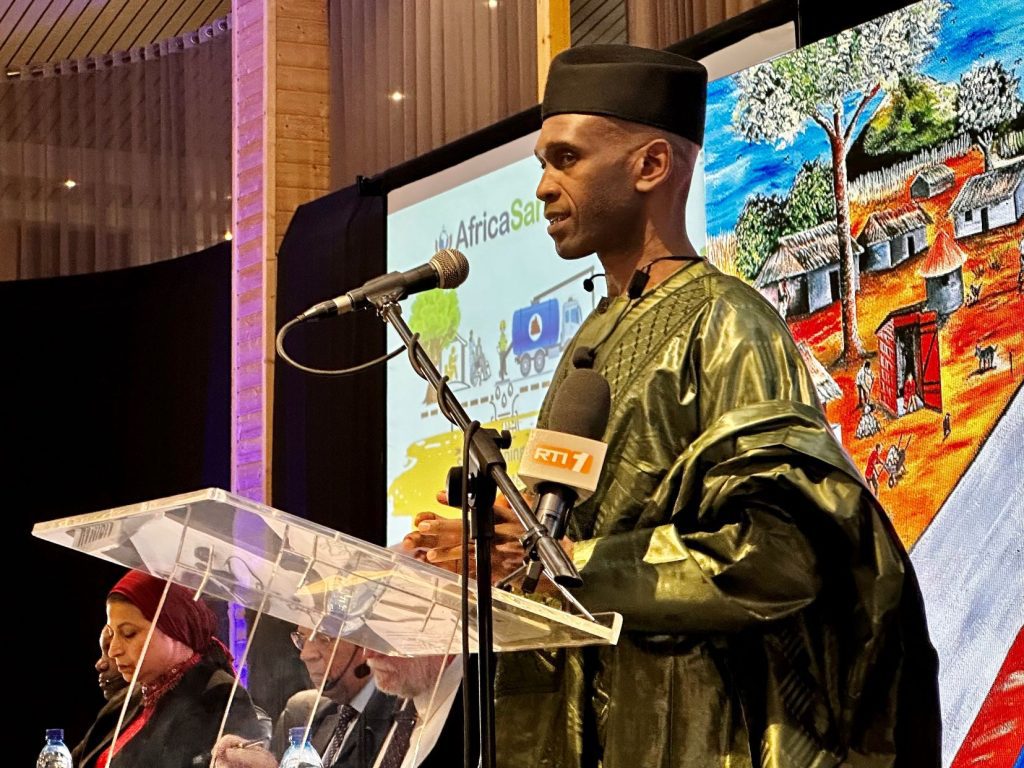

Hon. Carl Hermann Gustav Schlettwein, Minister for Agriculture, Water, and Land Reform of the Republic of Namibia and AWF Governing Council Chairperson, delivered a welcome statement, setting the stage for the subsequent sessions. This was followed by a statement from AMCOW President, Prof Dr Hani Sewilam, Minister for Water Resources and Irrigation of the Arab Republic of Egypt. In his remark, quoting the data from the 2022 Africa Water and Sanitation Sector Monitoring (WASSMO) Report, he called for increased efforts toward ensuring access to potable water for the over 400 million in need and access to safely managed sanitation and essential hygiene services to the approximately 800 million who do not have them.
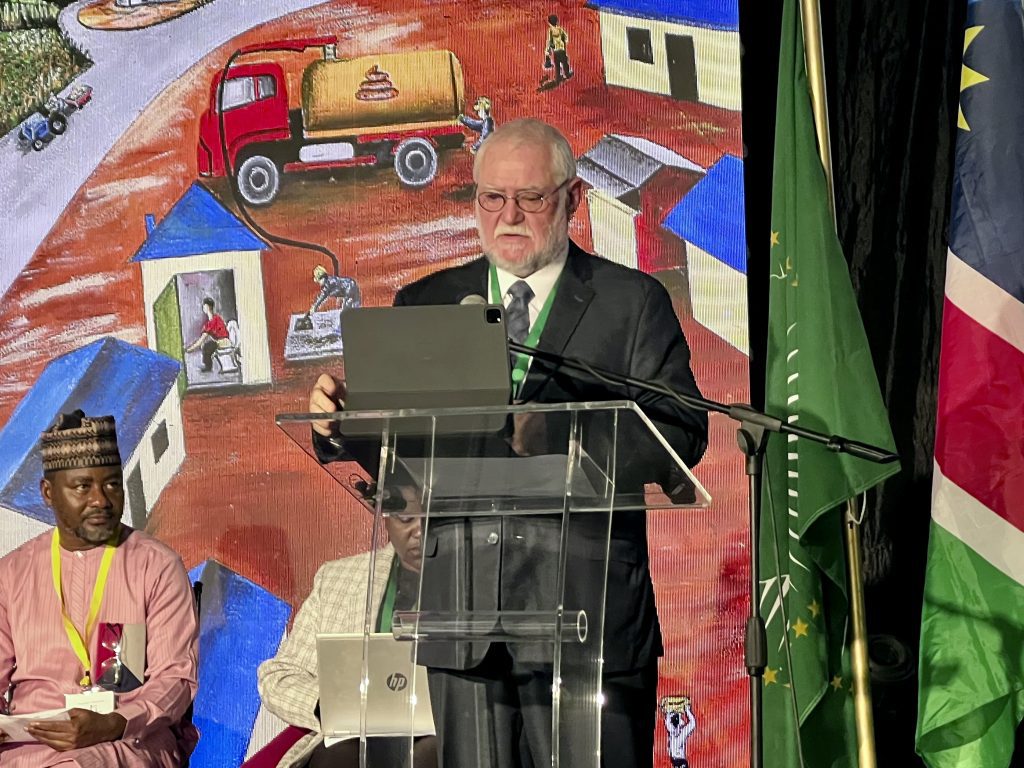

H.E. Amb Josefa Leonel Correla Sacko, Commissioner of Agriculture, Rural Development, Blue Economy, and Sustainable Environment at the African Union Commission, was represented by the AUC’s Director of Agriculture, Rural Development, Blue Economy, and Sustainable Environment, Harsen Nyambe. He appreciated the collaboration of the Republic of Namibia and AMCOW in organising such an important conference. Also, he observed that Africa’s population, which is over 1.4 million people, is overstretching existing sanitation services. Director Nyambe highlighted that the youth comprise most of this population and urged them to be included in sanitation-related decisions. The AUC representative further stressed that one of the significant challenges faced in similar conferences has been the inability to implement the outcomes of the events. He, therefore, called on all participants and sector actors to ensure that the AfricaSan7 Conference Decisions are implemented.
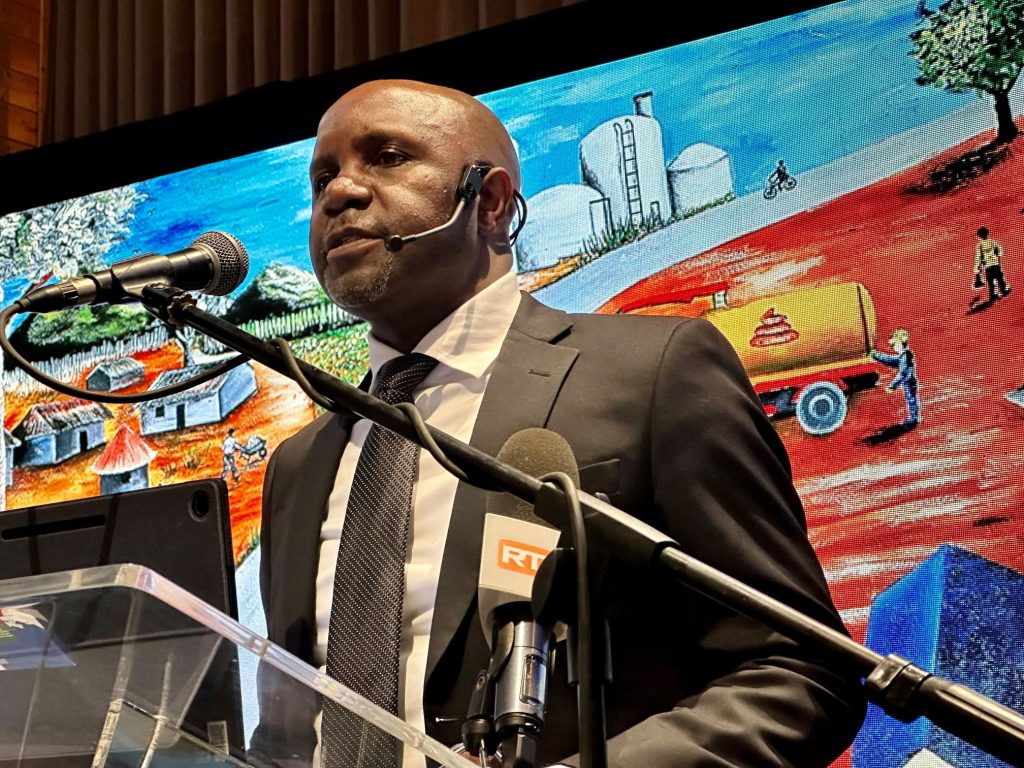

One of the high points of the conference segment was the launch of the 2023 Ngor Report on Sanitation and Hygiene, shedding light on the status and future priorities in the sector. Before the launch, the conference viewed a film summarising the report’s findings, and copies were distributed to participants.
The AfricaSan8 Hosting Memorandum of Understanding (MoU) was signed between the AMCOW Secretariat and the Republic of Ghana, represented by the Minister for Sanitation and Water Resources, Hon. Dr. Freda Prempeh. In her remarks, the Minister assured the conference that the Republic of Ghana is willing and ready to host the event and welcomes Africa and the world to AfricaSan8 in Accra, Ghana, from 12 – 18 October 2025.
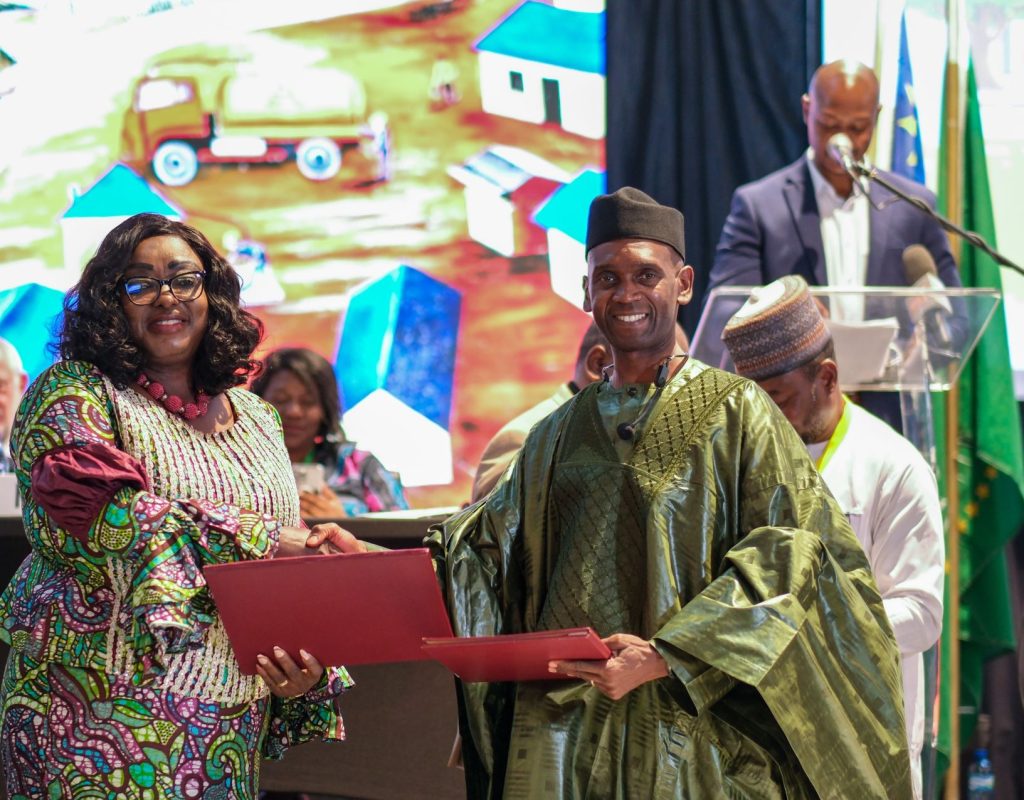

The conference received video-recorded goodwill messages from some representatives of some AMCOW partners: UNICEF’s Executive Director Catherine Russell, Director of the Water Development and Sanitation Department, Africa Development Bank, Osward Mulenga Chanda, World Water Council (WWC) President Loïc Fauchon, and the USAID Global Water Coordinator/Senior Deputy Assistant Administrator Nancy Eslick.
Dr T. E Ngurare directed the AfricaSan 7 Conference Closing Plenary, featuring cultural entertainment and a youth message resonating with the importance of intergenerational collaboration.
Session convenors delivered their collective message through a video leading to the conference declaration. The occasion occurred with the reading of the Swakopmund Declaration on “Accelerated Actions for Inclusive, Sustainable and Resilient Sanitation and Hygiene Services Delivery in Africa” by Dr Tahani Sileet, Minister Assistant for International Cooperation at the Ministry of Water Resources and Irrigation, Egypt and AMCOW TAC Chair. Click on the links to download copies in English and French.
The day concluded with a high-level visit to the exhibition stands where the host Minister, Hon Carl Schlettwein, and the President of AMCOW, Prof Dr Hani Sewilam, visited the exhibition booths in the company of other participants. The event included anthems and a communal lunch, fostering networking and collaboration among participants.
